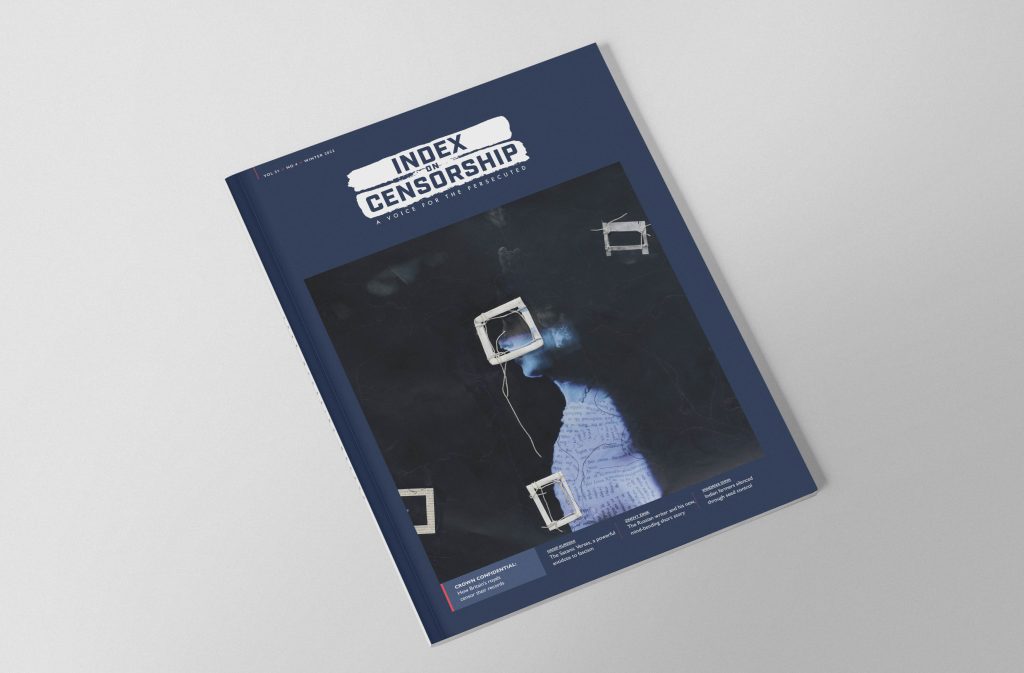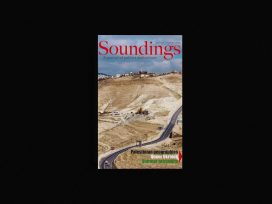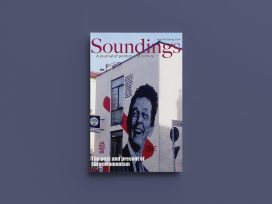If you want to understand how deep the UK Royal Family’s mania for secrecy runs, just try the following exercise. Go to the website of the National Archives (anyone with a computer and an internet connection can do this) and search the catalogue with the term “Royal Family”. It is then possible to filter the search to see which files are “closed” or “retained”. Nearly 500 files are categorised in this way, some going back well into the last century, beyond the reign of the late Queen Elizabeth II’s father, George VI.
Perhaps not surprisingly, hundreds of these files refer to the short reign of her uncle, Edward VIII, who abdicated in 1936 after less than a year on the throne. Take a closer look and many of these files have absolutely nothing to do with national security, diplomacy or privacy – the usual reasons for withholding government files. In fact, many of them refer to royal memorabilia for Edward’s abandoned coronation, which had been due to take place in May 1937. Embarrassing, perhaps, and the Duke of Windsor, as Edward became, remains a controversial figure. But is it really necessary to keep these files sealed for 100 years?
At a stretch, it is possible to imagine the sensitivity of a file about the “Royal Crown and Cypher on pocket watches from Germany”, given who was in power in that country at the time, but it’s hard to see why files on similar souvenir items manufactured in Britain such as pens, picture frames, neon signs and wine labels should remain secret 86 years later, let alone closed until 2037.
Other entries are just plain bizarre. A file from 1990-91 is marked closed until 2034. Its title is intriguing: “Petition to the Queen on behalf of Ago Piero Ajano aka HRH Don Juan Alexander Fernando Alphonso of Spain concerning his alleged plight of poverty and ill treatment in the UK.” It seems Mr Ajano claimed to be the illegitimate son of the Duke of Windsor, and had fallen on hard times. The story is either entirely spurious or utterly sensational: either way, there can be no possible justification for keeping the file secret.
The black spider memos
Since 2010, there has been a blanket exemption to the Freedom of Information Act for all official correspondence relating to the monarch, the heir to the throne and the second-in-line to the throne. This was introduced during the decade-long battle by Guardian journalist Rob Evans to gain access to the so-called “black spider memos” from Prince Charles to certain government departments. Evans argued this correspondence constituted lobbying and should be released in the public interest.
“With the black spider memos, Charles was lobbying and trying to influence public policy,” Evans told Index. “We ought to know about this just as we would if it was a pharmaceutical company.” Evans believes his experience with the memos revealed a wider issue with transparency: “The reality is that the government wraps the royal family in secrecy in order to protect it from criticism. Whatever you think about the royal family, democracy is degraded because we can’t debate this fully if we don’t have all the information.”
After the death of Elizabeth II on 8 September 2022, two contradictory narratives about her historical legacy came to dominate the instant analysis of her 70-year reign. The first was that she assiduously took a back seat in matters of state and adopted a largely passive constitutional role. The second was that she was instrumental in guiding the country in the post-war period from Empire to Commonwealth. Neither can be entirely true.
Professor Rory Cormac, of the University of Nottingham and co-author of The Secret Royals, says the narrative of non interference worked powerfully alongside the pageantry associated with the Queen to produce a benign public image of the monarch. But this is a long way from reality. “She was a political actor and there are consequences. The idea that all she did was cut a ribbon from time to time is a grotesque misrepresentation. They have managed their past incredibly effectively.”
Cormac points to three specific areas where more openness would contribute to a greater understanding of the history of the latter half of the 20th century. The first is the Suez Crisis of 1956, just four years into the Queen’s reign, when Britain was forced into a humiliating retreat by the USA after initially backing the invasion of Egypt to seize back control of the Suez Canal. “There is a whole cottage industry on what the Queen knew, and when,” said Cormac. “It is a very important case, but historians are just scratching the surface. It’s mainly speculation.” The second area is the role played by the monarchy in the end of the empire. Many files in the National Archives referring to royal visits to the former colonies during this period are still closed.
The third, crucially important, subject is Northern Ireland, where the Queen’s political role has been largely unexplored by historians. Cormac highlights the example of the royal visit to the province in 1977 – until that point the largest security operation in British history. Files from the government exist but nothing from the royal side, leaving historians only to speculate.
Cormac and his co-author, Professor Richard Aldrich of Warwick University, are both specialists in the history of intelligence, and the comparison between the royal world and the world of espionage does not go unnoticed in their book: “Both control and curate their own histories carefully; both are exempt from freedom of information requests. Historians have to wait a long time for intelligence files to make their way to the National Archives – but at least some do eventually arrive. The Royal Family, by contrast, are the real enemies of history. There is no area where restrictions and redactions are so severe.”
A new approach to royal secrecy?
Cormac is part of a group of historians who believe there needs to be a new approach to royal secrecy. “The argument is that it is a slippery slope,” he said. “There is a blanket ban because, they say, where do you draw the line? But this general exemption needs to be challenged.” He and Aldrich have identified a process of historical vandalism carried out by loyal royal flunkeys. Lord Louis Mountbatten and art historian and spy Anthony Blunt went on “raiding parties” across Europe in the post-war period searching for documents on the Windsors. Princess Margaret was notorious for the bonfires she made of her mother’s papers. Much else was lost, destroyed or locked away in Windsor Castle. There is even a file from 1979-80 in the National Archives marked “Royal Family. Duke of Windsor’s Papers: allegations by Duc de Grantmesnil that they were stolen by secret agents”. It is closed.
In a recent essay entitled ‘Queen Elizabeth and the Commonwealth: Time to Open the Archives’, Philip Murphy, director of history and policy at the Institute of Historical Research, said: “Its obsessive secrecy combined with the length of the reign of Queen Elizabeth II means we probably have no more accurate a sense of how the monarchy has operated in our lifetimes than our grandparents and great-grandparents did in theirs.”
As Murphy and others point out, the reach of vetting teams from the Cabinet Office who have charge of what should and shouldn’t be published spreads way beyond the National Archives themselves. The personal archives of past prime ministers (Anthony Eden at the University of Birmingham and Harold Macmillan in Oxford) are subject to restrictions on royal material.
Meanwhile, the royal archives at Windsor give no access whatsoever to files on the reign of Elizabeth II, which include correspondence not just with prime ministers of the UK but premiers and governors-general of the Commonwealth realms. Even historians wishing to gain access to files from previous reigns are obliged to sign a form to say they will inform Buckingham Palace how any material will be used. Cameras are forbidden.
There are also files which have been reclassified after historians found information that proved uncomfortable to the Royal Family. A Metropolitan Police file (MEPO 10/35) on the protection arrangements for the Prince of Wales from 1935 showed that his security detail was spying on the future king and his lover Wallis Simpson. Details of Simpson’s affair with a married man, Guy Trundle, are laid out in salacious detail. A note on the affair to the Metropolitan Police commissioner marked “secret” was first released in 2003 and details of the file’s contents featured in Portillo’s State Secrets, a BBC series on the National Archives fronted by the former politician Michael Portillo. Yet any historian attempting to access MEPO 10/35 today will find it is “closed whilst access is under review”. No further explanation is given.
Murphy told Index: “The Palace has an instinct to micromanage and use deference.” In this case, this instinct seems particularly petty-minded as the information is already in the public domain. Most historians interested in the period will already have electronic versions of the file. The note on Simpson’s affair with Trundle is published in all its juicy detail on the website of the National Archives. Portillo’s programme is available to anyone with access to YouTube.
The mystery of Prince George
In some cases, the royal fetish for secrecy has left serious gaps in the historical record. For instance, why is so little of detail known about Prince George, Duke of Kent, the youngest brother of Edward VIII and George VI? He was a fascinating and controversial figure – a bisexual playboy who is alleged to have had affairs with film stars and celebrities from the jazz age including Noel Coward. In 1942, George died in an air crash in Scotland while serving in the RAF. He was the only member of the Royal Family for many centuries to have died on active duty. The notes from the Court of Inquiry into the incident were immediately lost and the circumstances of the crash remain shrouded in mystery. The incident is significant because there have been suggestions that the prince flouted wartime regulations to carry out the mission.
In the early 2000s, a veteran royal writer began a project to write George’s biography, but his mission was immediately hampered by the lack of information in the official record. He told Index: “I first visited the National Archives at Kew but Kent’s file, when I ordered it up, had quite obviously been weeded.” The author wrote to the Royal Archives in Windsor only to be informed that there were many calls on the time of the keepers of the records and that on this occasion they would be unable to oblige. He has since given up on the idea of writing the biography and the full life story of Prince George remains untold.
“A family which relies on public support to retain its primacy in British social life has, I believe, a duty to act responsibly when it comes to breaking the law, especially during wartime,” he said. “The actions of the Royal Archives in disallowing me access to Kent’s files (which in any case, it’s my certain belief, would have been severely edited) amounts to censorship, nothing more or less.”
In order to maintain good relations with Buckingham Palace, the author does not wish to be named here, but he remains furious at the lack of openness: “My belief is that everyone is entitled to a certain measure of privacy, but there can be no question that the Royal Family, and those who surround them, ruthlessly seek to rewrite history to their own advantage.”
The writer cites an extraordinary example from the time of the abdication crisis. In government papers from the time, he discovered considerable concern that “Bertie” (the future George VI) was not up to the job of taking over from Edward VIII. Instead, the idea was floated that Queen Mary should become Regent while the dust settled, and the crown would then pass to Prince George. Had this happened, the present Duke of Kent would now be King and not Charles III.
“How the Royal Family manages their affairs in such circumstances is of great importance to historians and, it can be argued, to the nation,” the writer added. “But without access to the Palace papers no accurate record of this event has been written and it’s altogether been bypassed by historians.”
The wall of silence
As part of Index’s investigation into royal secrecy, we sent a survey to two dozen journalists and historians who specialise in the area. Of those who responded, all but one said their research had been affected by the refusal of the archives to grant access to key materials.
A handful of historians have chosen to fight back. Most prominent of these is Andrew Lownie, the biographer of Edward and Mrs Simpson and the Mountbattens. For four years, at great personal expense, Lownie has been pushing for the release of the diaries and personal correspondence of Lord Louis Mountbatten, the late Prince Philip’s uncle and mentor to the present king. While these were bought by the University of Southampton using £4.5 million of public money, full public access was blocked at every stage – first by the university and then by an exceptional ministerial directive from the Cabinet Office. Following intervention from the Information Commissioner’s Office, the files were finally released earlier this year, but costs were not awarded to Lownie, who spent more than £300,000 of his own money on the case. It was, in short, only a half victory and a battle that should never have been fought to start with.
In a more clear-cut victory, Professor Jenny Hocking, of Monash University in Melbourne, successfully challenged the National Archives of Australia to release correspondence between the Queen and the Australian Governor-General, Sir John Kerr, from 1975. In that year Kerr dismissed the Labor prime minister Gough Whitlam following a constitutional crisis in which the opposition blocked government business by its control of the upper house of parliament, the Senate. The publication of Hocking’s The Palace Letters show the Queen was in regular correspondence with the governor-general about the possibility of Gough’s dismissal for several weeks. They present a picture of political engagement by the monarch which is very different from the approach the Palace prefers to project.
The work of Lownie and Hocking demonstrates that it is possible to push back against the official wall of silence. But it also shows the lengths to which the establishment is prepared to go to maintain royal secrecy. The Australian National Archives spent $1.7 million of public money contesting the release of the “Palace Letters” and it is not known how much the UK government spent fighting the Mountbatten release – but it is likely to be a similar sum.
There is no evidence that King Charles has a more open attitude to royal history than his mother did. Indeed, he has every reason to keep the papers from the Queen’s reign that refer to his own indiscretions securely locked away in Windsor Castle.
However, despite official efforts, the edifice of secrecy is crumbling. As historians of the Commonwealth further investigate the UK’s colonial past, it is unlikely the Palace will be able to maintain its tight control of the historical narrative in the way it has done in the UK itself. As Philip Murphy has written: “This sort of push-back against the Royal Family’s obsession with secrecy is more likely to be effective outside the UK than in Britain itself, where the Palace still exerts considerable influence over a distinctly deferential political class.”
The legacy of imperialism is the Achilles heel of royal secrecy. It will become increasingly difficult for the Palace to maintain the narrative about the role of the Queen in the successful transition from Empire to Commonwealth without allowing access to the documentary evidence to prove it.








